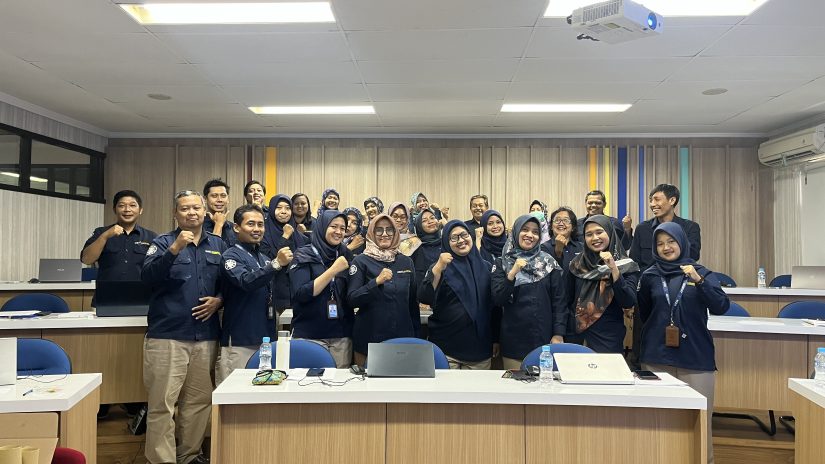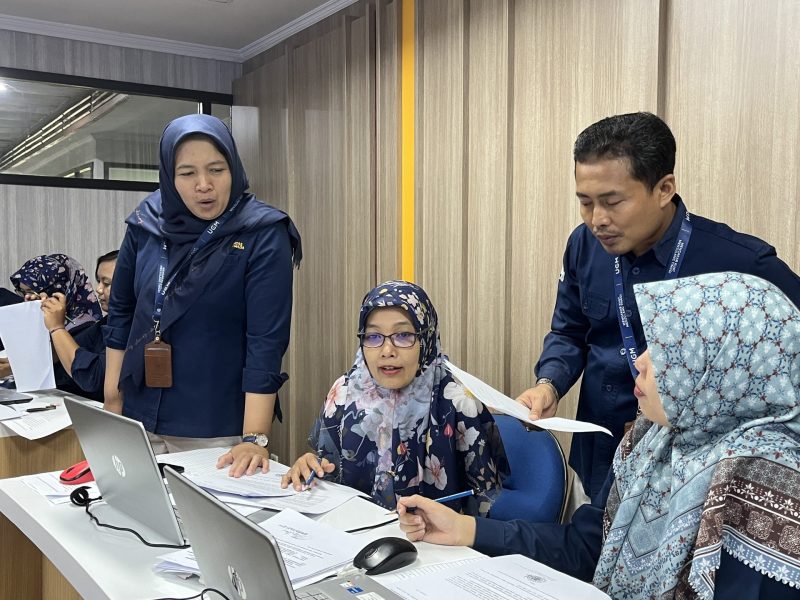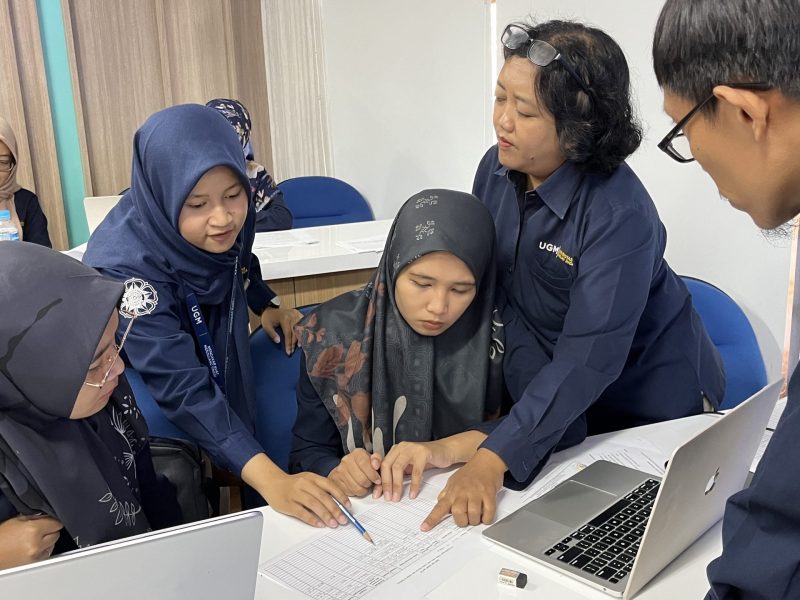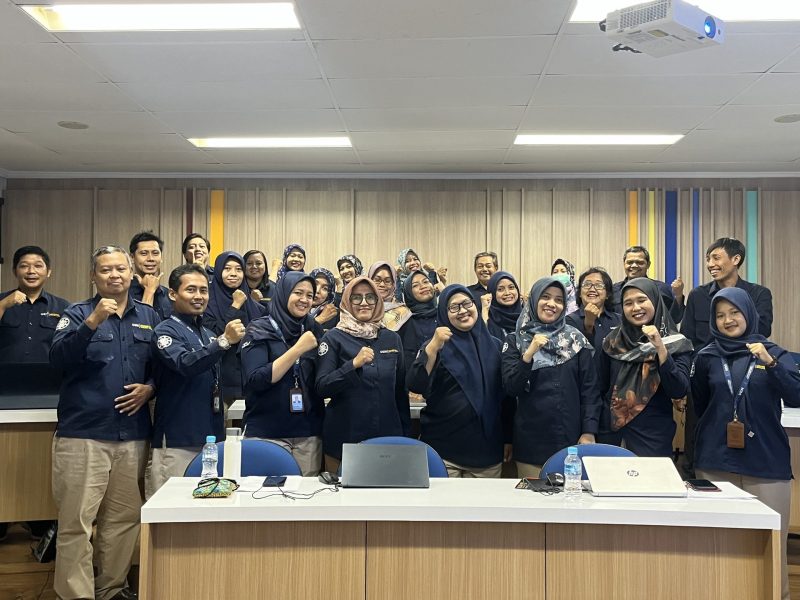
The Graduate School of Universitas Gadjah Mada (SPs UGM), held a records management training for its staff on Tuesday and Wednesday, June 11-12, 2024. This training was organized as a means of self-development for the staff to enhance their capabilities and promote the optimization of records management at the SPs UGM level. In this activity, SPs collaborated with the UGM Library and Archives Office to bring in archivists and records management experts as both speakers and training instructors.
On the first day, the training was divided into three sessions. The first session covered active records management, presented by Fitria Agustina, S.I.P., M.Sc. Furthermore, the second session was conducted by Heri Santosa, S.ST.Ars., focusing on inactive records management, while the third session addressed records depreciation, delivered by Kurniatun, A.Md., S.IP.
“Records are transcriptions of events or activities, which can take the form of photos, videos, or disks,” explained Fitria, citing the definition of records from Indonesian Law (UU Number 43, 2009).
Practically, records are divided into two types: dynamic records and static records. Dynamic records, stored for a specific period, are further divided into active and inactive records. Meanwhile, static records are those with historical value that require permanent storage.
Records management is crucial. Without clear organization, growing records can become untidy and unsystematic. Poor records management can also lead to difficulties in retrieval, improper depreciation, and even the loss of static records. Therefore, the UGM Library and Archives Office warmly welcomes the initiative from SPs UGM in organizing this training, said Arif Surachman, SIP., M.B.A., Head of the UGM Library and Archives Office.
The training continued with group practice sessions on the second day, Wednesday (12/6). In this session, participants were guided to file active records and compile lists of both active and inactive records. Furthermore, each participant was also guided to learn procedures for classifying archives in accordance with applicable regulations in UGM.
The activity attended with enthusiasm. Various questions and discussions enlivened the training. SPs UGM hopes that through this training, each participant will be more aware about the importance of proper records management and be able to apply it in their daily work.
Author: Muthia Nur Arifah
Keywords: SDGs, SDG 4: Quality Education, SDG 8: Decent Work and Economic Growth, Education, Education for Sustainability, Access to Education, Skills, Self-Development, Decent Work, Human Resources, HR, Employment, Sustainable Employment, Productivity



